
The Brittoniclanguages form one of the two branches of the Insular Celtic language family; the other is Goidelic. It comprises the extant languages Breton, Cornish, and Welsh. The name Brythonic was derived by Welsh Celticist John Rhys from the Welsh word Brython, meaning Ancient Britons as opposed to an Anglo-Saxon or Gael.

Boudica or Boudicca, was a queen of the ancient British Iceni tribe, who led a failed uprising against the conquering forces of the Roman Empire in AD 60 or 61. She is considered a British national heroine and a symbol of the struggle for justice and independence.

Hengist and Horsa are Germanic brothers said to have led the Angles, Saxons and Jutes in their invasion of Britain in the 5th century. Tradition lists Hengist as the first of the Jutish kings of Kent.
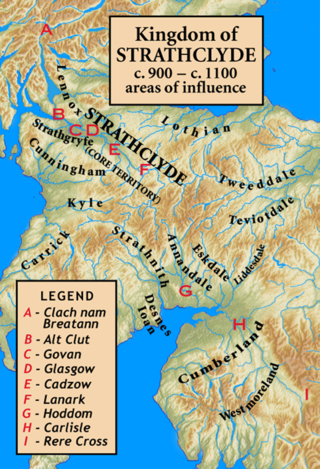
Strathclyde, was a Brittonic successor state of the Roman Empire and one of the early medieval kingdoms of the Britons, located in the region the Welsh tribes referred to as Yr Hen Ogledd, which comprised the Brythonic-speaking parts of what is now southern Scotland and northern England. The kingdom developed during Britain's post-Roman period. It is also known as Alt Clut, a Brittonic term for Dumbarton Castle, the medieval capital of the region. It may have had its origins with the Damnonii people of Ptolemy's Geography.
100 Greatest Britons is a television series that was broadcast by the BBC in 2002. It was based on a television poll conducted to determine who the British people at that time considered the greatest Britons in history. The series included individual programmes featuring the top ten, with viewers having further opportunity to vote after each programme. It concluded with a debate and final determination of the ranking of the top ten. Although many living people were included among the top 100, all of the top ten were deceased.
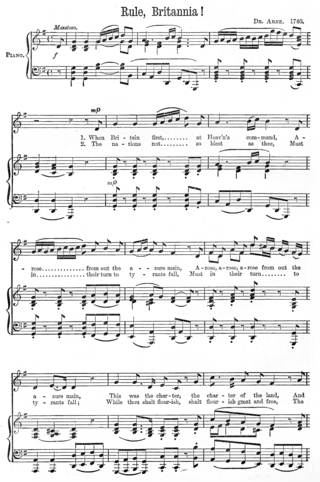
"Rule, Britannia!" is a British patriotic song, originating from the 1740 poem "Rule, Britannia" by James Thomson and set to music by Thomas Arne in the same year. It is most strongly associated with the Royal Navy, but is also used by the British Army.

Briton Ferry is a town and community in the county borough of Neath Port Talbot, Wales. The Welsh name may indicate that the church, llan, is protected from the wind, awel. Alternatively, Sawel may be a derivative of Saul, St Paul's earlier name. He once landed at Briton Ferry. An alternative Welsh name unused today is Rhyd y Brython, a direct translation of Briton Ferry. The Normans referred to the River crossing as La Brittonne and Leland in 1540 as Britanne Fery.
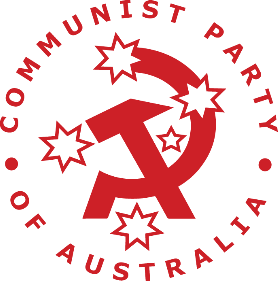
The Communist Party of Australia (CPA) is a communist party in Australia. It was founded in 1971 as the Socialist Party of Australia (SPA) and adopted its current name in 1996. The party was established by former members of the original Communist Party of Australia who resigned or were expelled due to internal disagreements over the Warsaw Pact invasion of Czechoslovakia and the party's adoption of Eurocommunism. The party had its first and only electoral win in 2012 when it gained a seat on the Auburn City Council, which they held until 2016.

The Britons, also known as Celtic Britons or Ancient Britons, were the people of Celtic language and culture who inhabited Great Britain from at least the British Iron Age until the High Middle Ages, at which point they diverged into the Welsh, Cornish and Bretons. They spoke Common Brittonic, the ancestor of the modern Brittonic languages.

Anglo-Saxon England or Early Medieval England, existing from the 5th to the 11th centuries from the end of Roman Britain until the Norman conquest in 1066, consisted of various Anglo-Saxon kingdoms until 927, when it was united as the Kingdom of England by King Æthelstan. It became part of the short-lived North Sea Empire of Cnut the Great, a personal union between England, Denmark and Norway in the 11th century.

The Britons was an English anti-Semitic and anti-immigration organisation founded in July 1919 by Henry Hamilton Beamish. The organisation published pamphlets and propaganda under imprint names: Judaic Publishing Co. and later The Britons, and (The) Britons Publishing Society. These entities mainly engaged in disseminating anti-Semitic literature and rhetoric in the United Kingdom and called for greater nationalism, being considered academically among the forefront of British Fascists. Imprints under the first label exist for 1920, 1921, and 1922.

Britons never made up more than a small portion of the population in Hong Kong, despite Hong Kong having been under British rule for more than 150 years. However, they did leave their mark on Hong Kong's institutions, culture and architecture. The British population in Hong Kong today consists mainly of career expatriates working in banking, education, real estate, law and consultancy, as well as many British-born ethnic Chinese, former Chinese émigrés to the UK and Hong Kongers who successfully applied for full British citizenship before the transfer of sovereignty in 1997.
The title King of the Britons was used to refer to the most powerful ruler among the Celtic Britons, both before and after the period of Roman Britain up until the Norman invasion of Wales and the Norman conquest of England. Britons were the Brittonic-speaking peoples of what is now Wales, England and southern Scotland. The Britons are the ethnic ancestors of the Welsh in addition to the Cornish and Bretons.

In the course of his Gallic Wars, Julius Caesar invaded Britain twice: in 55 and 54 BC. On the first occasion Caesar took with him only two legions, and achieved little beyond a landing on the coast of Kent. The second invasion consisted of 628 ships, five legions and 2,000 cavalry. The force was so imposing that the Britons did not dare contest Caesar's landing in Kent, waiting instead until he began to move inland. Caesar eventually penetrated into Middlesex and crossed the Thames, forcing the British warlord Cassivellaunus to surrender as a tributary to Rome and setting up Mandubracius of the Trinovantes as client king.
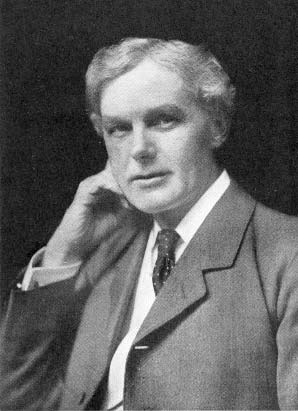
John Henry Clarke was an English classical homeopath. He was also, arguably, the highest profile anti-Semite of his era in Great Britain. He led The Britons, an anti-Semitic organisation. Educated at the University of Edinburgh, he received his medical degree in 1877.
Britons Publishing Society, founded in 1923, was an offshoot of The Britons. According to scholar Gisela C. Lebzelter, The Britons split because:
... internal disagreements proved paralysing. Seven members were excluded in November 1923, and three executives members, J. H. Clarke, the famous British homeopath, R. T. Cooper and W. A. Peters, seceded to establish 'The Britons Publishing Society'.
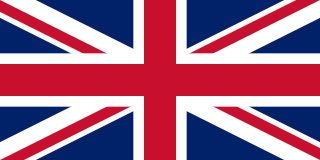
British people or Britons, also known colloquially as Brits, are the citizens of the United Kingdom, the British Overseas Territories, and the Crown dependencies. British nationality law governs modern British citizenship and nationality, which can be acquired, for instance, by descent from British nationals. When used in a historical context, "British" or "Britons" can refer to the Ancient Britons, the indigenous inhabitants of Great Britain and Brittany, whose surviving members are the modern Welsh people, Cornish people, and Bretons. It also refers to citizens of the former British Empire, who settled in the country prior to 1973, and hold neither UK citizenship nor nationality.
Janet Badjan-Young is a Gambian playwright and administrator, "easily one of the most prolific playwrights" in the country.

Briton's Lane Gravel Pit is a 21.5-hectare (53-acre) geological Site of Special Scientific Interest east of Sheringham in Norfolk. It is a Geological Conservation Review site and it is in the Norfolk Coast Area of Outstanding Natural Beauty.


















